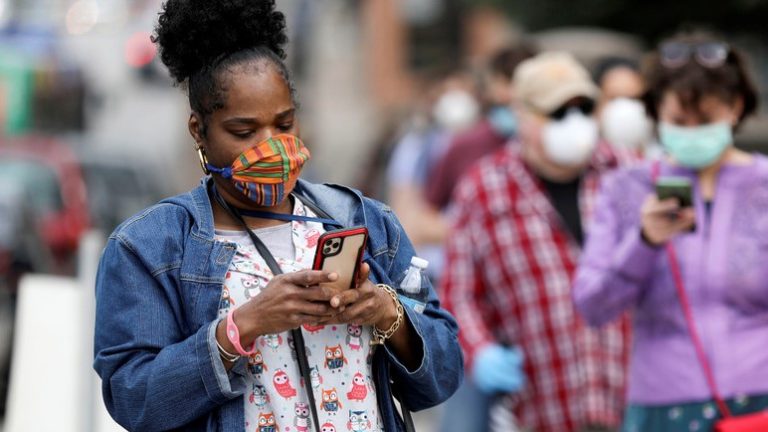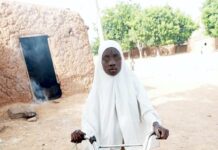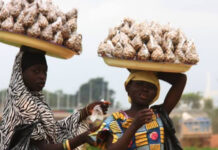Infodemic, a term coined by World Health Organisation (WHO) to describe the deluge of misinformation at a time of pandemics, continues to diffuse on social media and its perils negatively influence users behaviour in disregarding measures aimed at curbing the spread of the novel coronavirus in Nigeria.
The WHO and many fact-checking organisations warn that, with the fast rate at which information spreads on the internet, infodemics circulate faster than pandemics and pose greater threats in the war against COVID-19.
“It negatively affects the war on COVID-19,” Bashir Sharfadi, a fact-checking journalist, said.
“The perception of whoever receives fake news surrounding coronavirus changes whenever he scrolls down and comes across a conspiracy theory on social media,” he said.
Disinformation, misinformation and conspiracy theories gain wider attentions in a short time than facts and spread on different social media platforms at an alarming rate, making it extremely difficult to separate fact from fiction.
“This is the tragedy of fact-checks. They don’t stop fake news from further circulation. They go other ways and false claims find another,” Bashir said.
Although big-tech companies are doing their best to slow down the speed at which fake news and its cousins spread, the measures being taken are not yielding the expected results in totally eliminating the influence already created by disinformation, the journalist said.
“We spot lots of false news on social media, but we select and fact-check very few,” said another Abuja based fact-checking journalist who prefers anonymity.
“While many of our fact-checks don’t necessarily change perceptions of social media users, they influence policy makers on how to approach some issues easily,” the journalist added.
The algorithms are not helping it. As people prefer to receive information that align to their already held beliefs and discard dissenting and alternative views, infodemics work based on the loopholes of “users preference” to alter the mindsets of social media users.
In Nigeria, the imposition of total lockdown across the country forced millions of people to stay at home, restricting their mobility and pushing them to increase screen time. This does not only decrease physical contacts but aids social media addiction and ease of spreading infodemics.
“People who normally go to school and market now spend their time on social media being carried away by Information on Instagram, WhatsApp and Facebook,” said Abdulbaki Jari, a factchecking journalist with BBC Hausa Service.
HumAngle digs and follows claims made by different influential people that trend mainly on WhatsApp, Twitter and Facebook and shape discussions on the platforms, including suspicion and distrust on the coronavirus pandemic in Nigeria.
Read Also:
Among the most influential conspiracy theories and false or misleading claims are the ones made by clerics offline but find their way online in the form of videos, audios, texts or social media banners.
Conspiracy theories with regards to the origin of coronavirus, its cure and politically motivated misleading information have been posted on different platforms and shaped discussions online and offline.
Influencers Aid Infodemics
Dino Melaye
Armed with his Twitter handle and large following, Dino Melaye, a former senator, became a notorious peddler of disinformation since the beginning of coronavirus outbreak in Nigeria. He was at the forefront in spreading the conspiracy theory that 5G was the technology behind the COVID-19 pandemic in the world.
Melaye, who represented Kogi West in the National Assembly, alleged that there was a “powerful global force for economic interest trying to introduce 5G into the global market” to harm a lot of people.
In a video shared via his Twitter page, Melaye, who has about 1.3 million followers, added: “From my research, this coronavirus is really not the problem. The major problem is this 5G that has been delayed.”
On Thursday, April 16, Melaye shared an old 30-second video on rice distribution to a large crowd in Nigeria and the video has gone viral.
The video, which was taken in 2019, was passed off as a representation of how food is distributed to Nigerians during COVID-19. The video has garnered almost 81,000 views within a short time and generated more than 1,314 retweets and 3,277 likes.
Mallam Bashir Ahmad Sani
The Sokoto based Islamic cleric claimed that coronavirus “was created to reduce [human] population”.
In an eight-minute video that has trended widely on Facebook and WhatsApp, the cleric tried to support the conspiracy theory that COVID-19 was a bioweapon to reduce world population by saying that virus “is not living thing” therefore, “was created”.
Sheikh Sani Yahaya Jingir
The Plateau State based influential cleric and leader of Jama’atu Izalatul Bid’a Wa Iqamatus Sunnah, claimed, in series of videos shared widely on social media, that coroanavirus was a western plot to stop Muslims from going on pilgrimage.
The claim by the popular cleric trended again after Nigeria imposed restrictions on congregational prayers in mosques to encourage social distancing. It continuously shapes discussions with regards to the religious conspiracy surrounding the novel coronavirus pandemic in Nigeria.
Pastor Chris Oyakhilome
In a video uploaded to Twitter and Facebook, the popular Nigerian pastor, in an online service, claimed that the use of face masks was politically motivated and had no scientific basis.
“Wearing face masks is embarrassing to science,” he said, adding that “medical masks are not useful to the public”.
However, contrary to what the pastor claimed, WHO encourages the use of the masks but defined the type to be used.



























